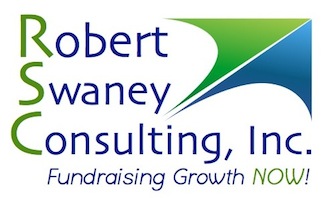contributing writing by RSC Senior Consultant Jeremy Hatch, cfre
Welcome to 2013! Less than a week into the New Year and
already our world is changing with some mixed news from
 |
| Your Donors Can Make It! |
Congress. Over the past
few months, many RSC clients (along with board members, volunteers and donors)
have expressed concern and fear about changes to tax law in 2013. Some donors have stated that they will likely
not be able to give with the same fervor as they once did because of the
impending changes.
Before donor-paralysis sets in, let’s look at what we know
so far, based on the agreement passed by Congress on January 1:
- Tax deductibility of charitable gifts: The agreement does not
include (as feared by many) any “across the board” limit or cap on the
deductibility of charitable gifts for 2013 but rather places a cap on itemized
deductions for some families earning more than $300,000 per year, or some individuals earning more than $250,000 per year. It is a
somewhat complex calculation but shouldn’t have a significant
impact on the vast majority of our donors. click here for an excellent sample scenario, provided by the League of American Orchestras.
- IRA Charitable Rollover continues for 2013: In happier news for
the non-profit community, this popular giving vehicle has been reinstated and allows
donors who are 70 ½ or older the option to make charitable gifts directly from
IRA accounts. The measure is retroactive to 2012 (giving donors the opportunity
to make a 2012 gift via this vehicle if completed by January 31, 2013).
Most non-profit organizations are asking about what these
changes mean. How should you prepare,
react and respond? Is your current
Annual Fund program affected? What about
planned gifts?
In response, RSC says, “Slow down, take a breath and initiate
some practical steps that will encourage your donors to continue being
generous:
- Step #1—Stay the course. There may be bigger changes ahead in
future years with our tax code, but for 2013 the tax benefit is unchanged for
the vast majority of your donors and prospects. It is vitally important to
stick to your solicitation plan and calendar. The development committee needs
to keep focused and your direct response plans should proceed without delay.
- Step #2—Communicate the facts to your board and volunteers: Let
your key volunteers and solicitors (especially those who expressed concern last
fall) know about these changes and coach them through talking about the issues
with prospects and donors.
- Step #3—Communicate with your donors: The IRA rollover has
proven very popular in recent years as a giving vehicle. Strategize internally
about prospects who might be a good fit for this opportunity (older donors with
pending major gift pledge payments, etc.) and consider a custom communication
in the coming weeks and months to market this opportunity.
- Step #4—Make it personal: For a small percentage of our donors and
prospects, this situation might be a disincentive to invest in your non-profit’s
good work. This is all the more reason to cultivate donors personally via
peer-to-peer activity. If one of your key donors has slightly less to give away
in 2013, you had better realize they will make a meaningful investment where
they feel best connected, most appreciated, and personally invested. Make sure
it is to you.
- Step #5—Stay engaged with RSC: Growing your fundraising capacity for arts and
cultural organizations is our business, regardless of the external factors. We
can offer strategies, counsel and practical advice. Together we can make 2013 your
year to achieve Fundraising Growth Now!
RSC believes that one key to success is to continue
communicating with your patrons in times of celebration, success, struggle or
uncertainty. Mailing information can be
helpful, but personally reaching out and talking with your most vested
stakeholders is paramount. Always be
ready to encourage them to continue their support and always direct them to
their financial advisor to deal with specific situations. If you haven’t reached out to your patrons regarding
the tax changes, do it today.


